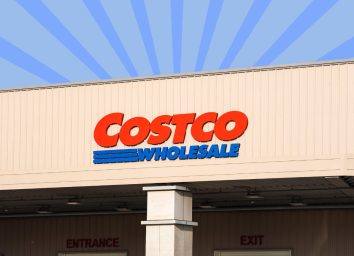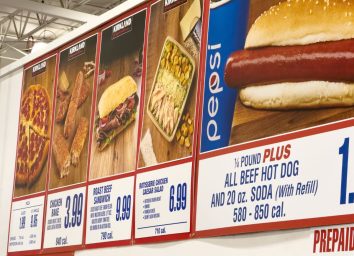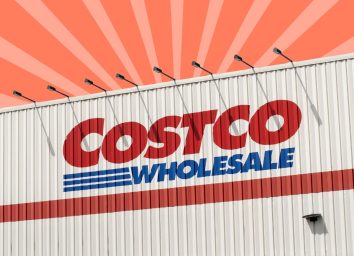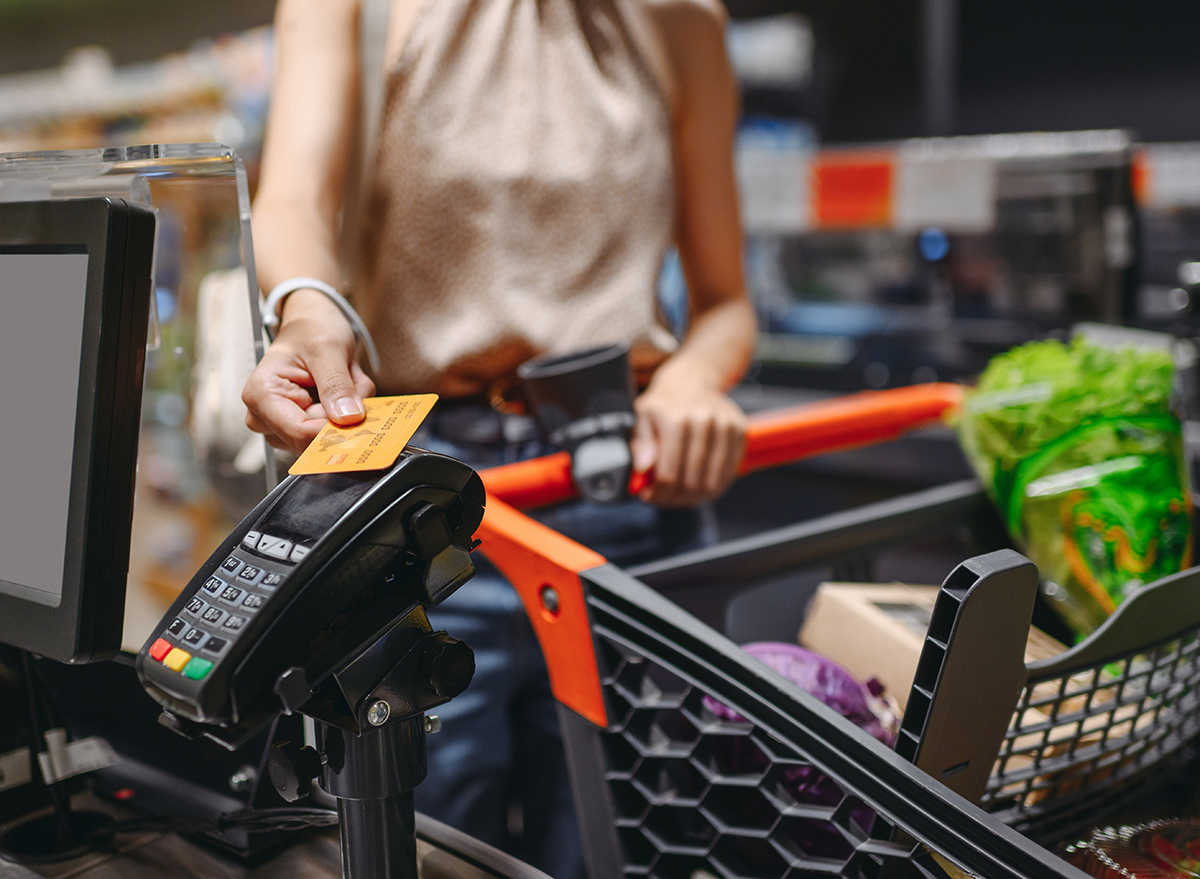
Rising prices are hitting us everywhere—at the gas station, clothing stores, restaurants, and yes, the grocery store. If the idea of going food shopping makes you worry about the impact on your wallet, you're not alone.
Though prices peaked in the beginning of 2023, 94% of consumers were still concerned about being able to afford food in August, according to Supermarket News, and the sticker cost of some staples are still sky-high. With the cost of groceries compared to fast food, you're left wondering if it really is cheaper to cook at home.
The truth is, no matter how expensive the food at the grocery store is, it's usually going to cost more to dine out, and while it may not be as easy to get cheap ingredients at your local grocer, there are usually some more affordable options if you know where to look—and if you know what to buy while you're there. For those with a tight food budget, shopping at these 11 regional and national grocery chains will save you money in the long run.
Want more tips to navigate the grocery store? These expert recommendations will help you save on eating healthy.
Aldi
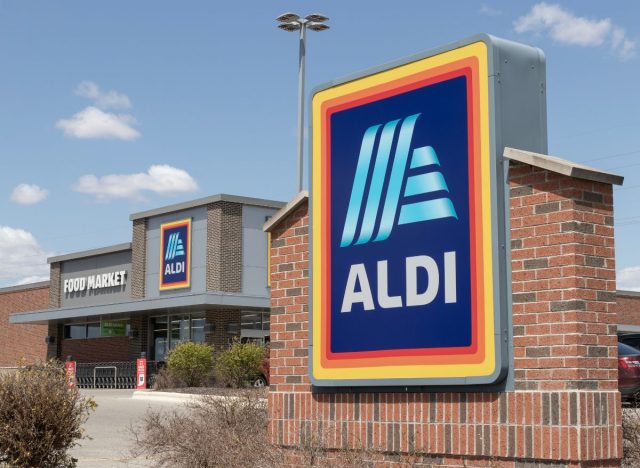
The grocer from Germany that expanded the no-frills shopping experience to the U.S. consistently has some of the best prices you can find, and that's by design. The business keeps overhead low by providing 90% private-label goods with minimal marketing and simple in-store displays and decorations, according to Taste of Home. Company policies also cut back on labor costs without affecting employee wages, like reducing store hours and encouraging customers to return rented shopping carts—all designed to give back savings to shoppers.
This grocery chain has over 2,300 stores all across country. If you have one nearby, customers recommend shopping here for your staples, like dairy, meat, and produce. Aldi's many private-label items are lower in price than you'll see at most conventional supermarkets. While you can find organic fruits and vegetables for a great price, too, some of Aldi's produce is reported to be hit or miss depending on the store, according to customers on Reddit, so inspect freshness and quality each time you buy. If something you buy goes bad too quickly, you can use the store's "Twice as Nice Guarantee" to get a refund and a replacement.
For even more discounts at Aldi, look out for clearance items marked at "Aldi Savers" which come out on Wednesdays, bring your own shopping bags instead of paying for plastic, and shop in-store to avoid delivery or pickup fees.
Grocery Outlet
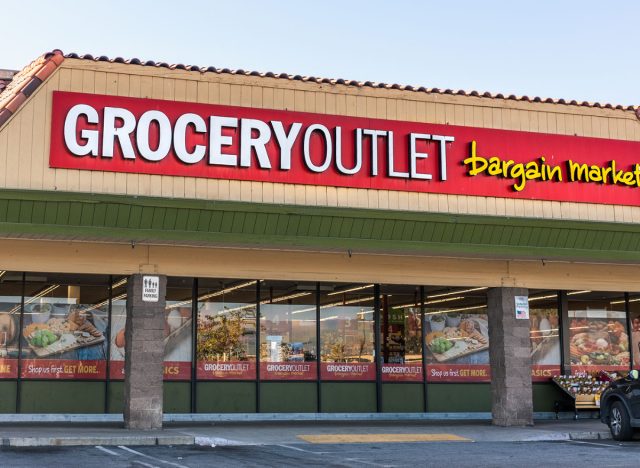
If you're looking for groceries for less and you don't mind a bare-bones selection, you'll want to check out Grocery Outlet. The "bargain market" has over 400 store locations on the West Coast and East Coast, and like any retail outlet, it offers discounted items by searching out excess inventory from national manufacturers and buys them for "pennies on the dollar," according to its website.
While this means that brands and products vary depending on their overstock availability, you can't beat the price. Consumers' Checkbook estimated that families who spend $250 on food per week at average grocery prices would save $3,510 per year by switching to the Grocery Outlet. Customers on Reddit recommend buying cheese, butter, meat, fish, nuts, dried fruit, and some frozen and canned goods. But, since selection changes frequently, you have to shop in-store with an open mind to find the best deals.
WinCo Foods
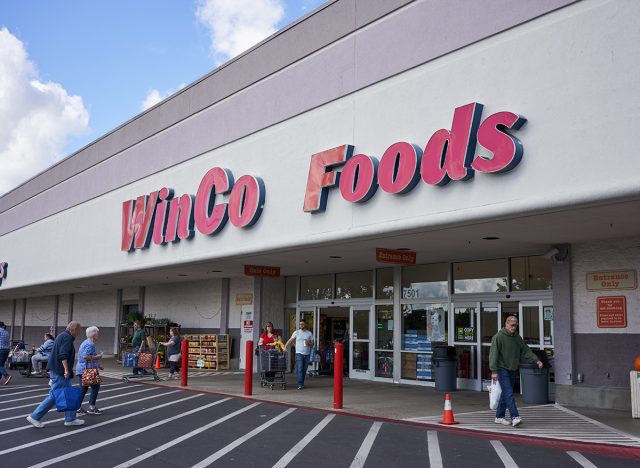
You don't need a membership to shop at this employee-owned warehouse chain. This Boise-based store is located regionally in 10 states across the West and some of the Midwest, and its unique approach to cost savings means that customers can shop wholesale prices without paying an annual fee. The average family would save $3,250 per year on groceries by shopping at WinCo Foods, according to Consumers' Checkbook.
One commenter on Reddit reported that buying the essentials at WinCo, such as bulk pantry items and produce, cuts their grocery bill nearly in half. "It may be a good idea to go to WinCo for a lot of your staples," the user wrote. "I do 90% of my shopping at WinCo because shopping anywhere else is ~50% more expensive."
Just keep in mind, learning how to bag your own groceries and paying in debit or cash are musts when you shop here. The company keeps its prices low by procuring goods directly from suppliers, eliminating transaction fees, and leaving the bagging to the customer at checkout.
Lidl
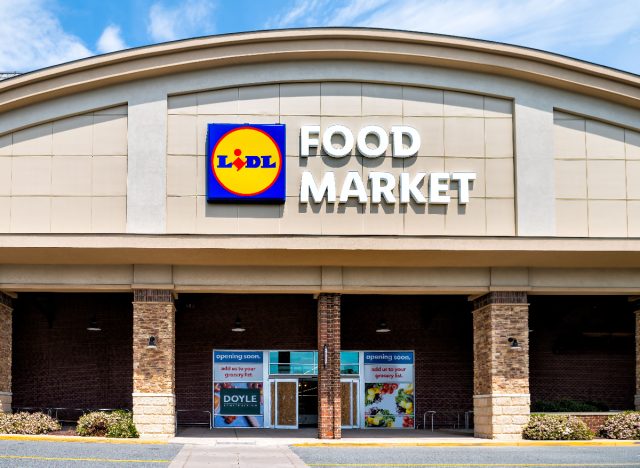
This discount grocer may seem like it's a sister chain to Aldi, as both retailers originated in Germany and offer similar high-value, low-price options by putting out mostly private-label products while reducing costs. However, the Lidl footprint is much smaller, with only around 170 locations in the U.S., according to Forbes, so you're less likely to encounter it relative to other national chains.
If you're lucky enough to be near one of these stores, you can take advantage of low prices on a wide variety of produce, meat, seafood, salad kits, dairy, and other basics, along with additional sales on nearly expired foods, according to Business Insider. It also boasts a high-quality bakery, according to customers on Reddit. "[H]ands down the bakery is the best. Cheap and tastes great."
Trader Joe's
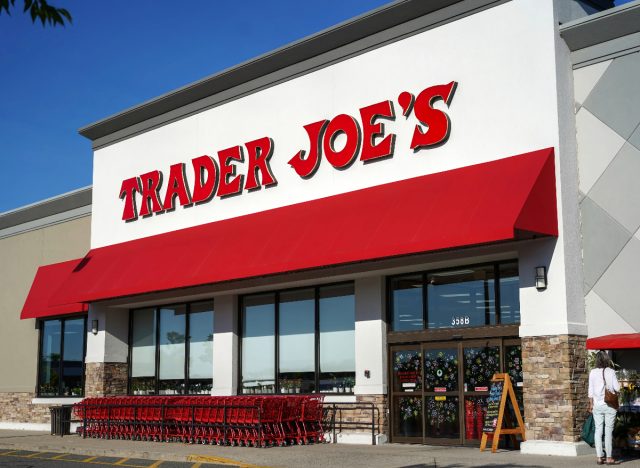
Even though this island-themed grocery store with 564 locations is known for putting roots down in higher-earning neighborhoods, Trader Joe's is still an affordable option for snacks, specialty items, and frozen or prepared foods, since the majority of its products come from its private-label brand.
It also reduces costs by working directly with suppliers and distributors, keeping advertising to a minimum, and discontinuing low-selling items. A roundup of staple groceries by CNET in August 2023 found the checkout total at Trader Joe's was 33% less expensive than the average grocery store.
However, customers on Reddit note that Trader Joe's isn't a great place to shop for cooking essentials, especially if you're preparing food for a family. "For me I would consider it bougie because while the prices of their snacks and frozen foods are decent, the portion sizes are not ideal for people shopping for a family," noted one commenter. "But I don't go there for fresh staples, instead I get coffee and bread and frozen foods and frozen veggies," wrote another. That means this specialty retailer likely won't be the only stop you have to make for groceries, but it can help satisfy your cravings for variety on a budget.
Market Basket
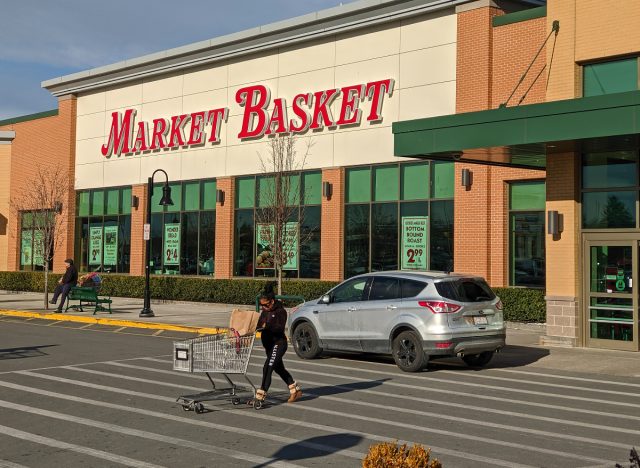
With just over 90 locations, Market Basket has gained a small but loyal base of customers for its affordable prices and exceptional value. A Reddit user purporting to be a past vendor for the East Coast supermarket shared some of its operating secrets that save shoppers money. A few examples: the company owns most of the store real estate, which saves on the cost of renting. It also prioritizes high turnover products enabling Market Basket to make its money on volume of sales rather than higher margins on prices.
"From the employees to the prices to the quality of food and overall visits, Market Basket has to be the best grocery store I've ever shopped at. They really are more than a grocery store. They build up communities and keep prices affordable for everyone," posted one Reddit user about this regional grocer.
Not only will you find good prices across the board on your everyday staples, but the hot bar has deals unlike any other, according to the same commenter. "Lunch deals are insane as well – the hot food section has everything. Cheeseburger/fries for $3, large pizza slices for $2, rib dinners for $6, salads for $3. Where else can you find this??" One warning shoppers report is that the crowds at Market Basket can get rowdy, so if you are prepared to wait in longer lines, you can save a little coin by shopping here instead of a nearby Wegmans.
Walmart
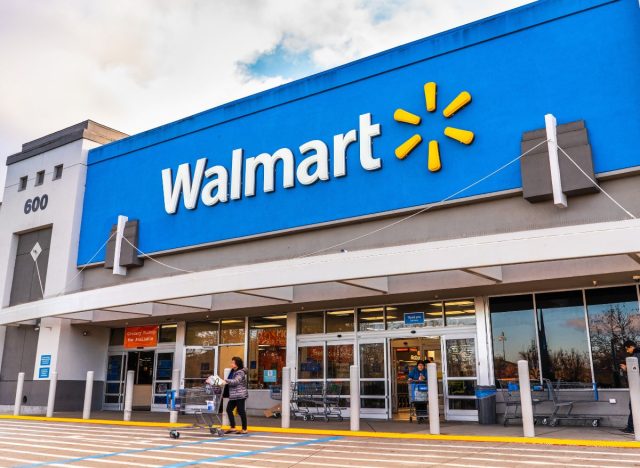
You can buy anything from a banana to a swimming pool at this global superstore. With over 10,500 stores in 19 countries, it's not much of a secret how Walmart achieves such competitive food prices. Consumers' Checkbook reports that the average annual grocery savings for a family who shops at Walmart would be $2,860. Because of the $415 billion company's hefty buying power with suppliers, Walmart shoppers can expect significantly lower prices compared to other grocery stores, along with added convenience with pickup and delivery options. "I like saving money. I buy most everything at Walmart Supercenters. I get home delivery from them," wrote one customer on Reddit.
However, you may be sacrificing quality for that "everyday low price", especially when it comes to fresh foods and meat. "I prefer getting produce and meat from Sam's Club," the user added. "Walmart's produce is lower quality and their meat is overpriced in my opinion."
Another important thing to keep in mind is that Walmart has been under scrutiny for unfair labor practices, with some news outlets reporting that stores are understaffed and team members are overworked. The corporation also raises red flags for pushing independently owned grocery competitors out of the market by undercutting prices.
"Walmart's leverage may seem like a good deal for consumers like me. In an era of runaway inflation, who doesn't want the lowest prices they can get?" wrote economic correspondent Alana Semuels for Time. "Since suppliers lose money by giving such low prices to stores like Walmart, they increase the prices they charge to other stores…The higher-priced stores struggle, lose customers and go out of business. Then the big box stores, their dominance established and their competitors wiped out, raise prices, the grocers say." This grocery giant comes with tradeoffs, but there's no denying you will find some of the lowest food prices at Walmart.
Sam's Club
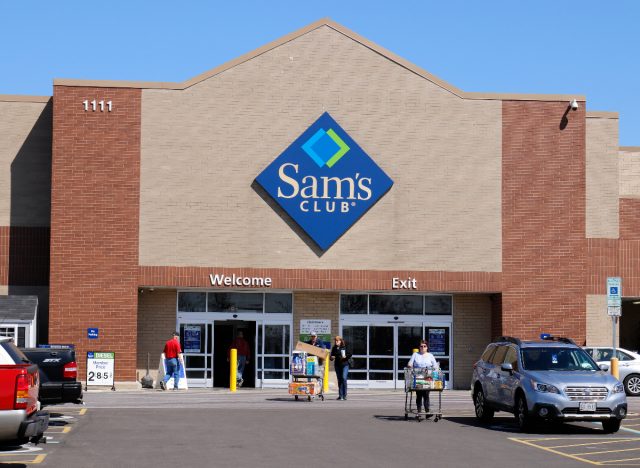
This warehouse club is owned by Walmart, and that's how the superstore can pass its price advantages onto Sam's Club members across almost 600 locations. Not only does its $50 annual basic membership fee come in cheaper than Costco, The Krazy Coupon Lady found that the Member's Mark warehouse offered equal or lower prices on many food staples, like produce, meat, and condiments. In a comparison of other wholesale grocers, AARP found that Sam's Club was the least expensive by around 15%.
"The reason Sam's Club is the least expensive of the three is because of Walmart's buying power," Howard Dvorkin, chairman of Debt.com, told AARP. "That said, they don't have the premium brands Costco typically has." If you don't mind buying in bulk, shopping at Sam's Club will definitely save you some dough.
Costco
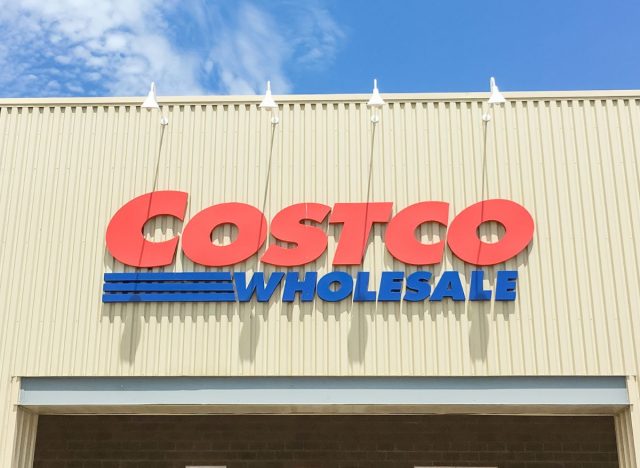
Members of America's top-selling warehouse club pay a $60 annual fee, but they unlock wholesale prices on produce, meat, bakery, and frozen products galore. The unit price can often beat out other grocery stores on goods like rotisserie chicken, butter, and croissants. There are also weekly sales that can save shoppers a couple extra bucks per item.
"The point of Costco is not to be the absolute cheapest of all options for all products ever. I find Costco to be marginally cheaper per unit and equal or better in quality than a conventional grocery store for many groceries, but you have to spend a lot at once to get those savings," wrote one customer on Reddit.
The caveat when it comes to Costco shopping: customers buy in bulk, which means you only save here if you are able to use up the groceries you purchase. For those who aren't normally feeding a big crowd, you may lose money by frequently having to toss leftover or expired foods, so only pick up what you can reasonably finish before it goes bad.
Food 4 Less
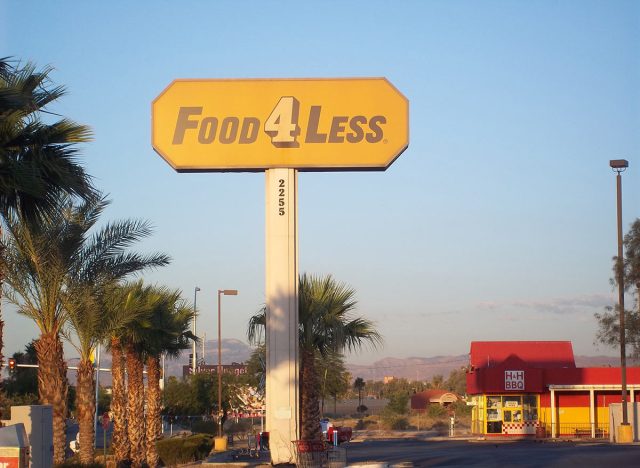
True to its name, this Kroger-owned discount store sprinkled throughout the West Coast, Illinois, and Indiana, gives customers access to farm-fresh foods at a reasonable price. Especially where the cost of living is on the higher end, Food 4 Less is a great option for staples, if you don't mind having fewer choices for specialty goods.
"Produce is fine on both quality and price," a Reddit user commented. "They have a large selection for the most part but it is a bit slim on more health-conscious products." Just be ready to bag your own groceries in exchange for these savings.
H-E-B
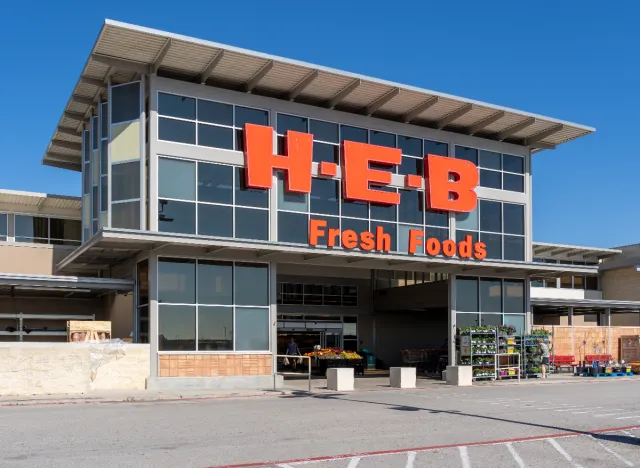
If you live in the Lone Star State, you have the good fortune of being within driving distance of a high-quality grocery trip that doesn't break the bank. This homegrown food retailer offers competitive prices, even compared to Walmart, by supplying fresh, locally sourced meat and produce within the Texas area, according to the financial blog Low Dough Family.
Even if some items are slightly more expensive, the product variety and service quality is top-notch, wrote a customer on Reddit: "[T]he HEB produce is 10,000x better than Walmart! When I shop, the partners are always smiling, playing around, laughing…"
Not only does H-E-B offer everyday low prices, you can also find more sales in the weekly ads and deals through digital coupons. The retailer even publishes wellness articles online to give shoppers tips on how to buy healthy food on a budget.

